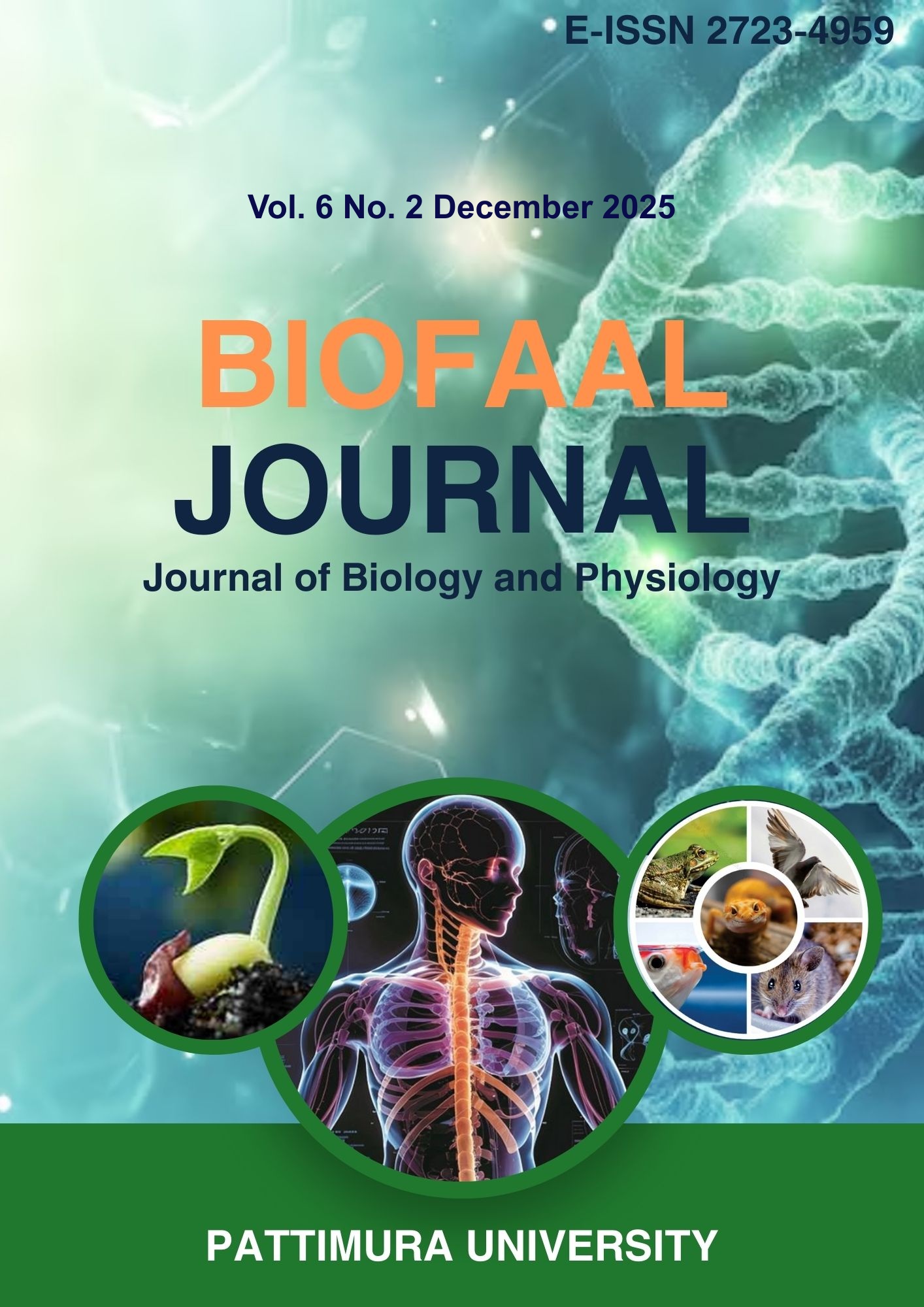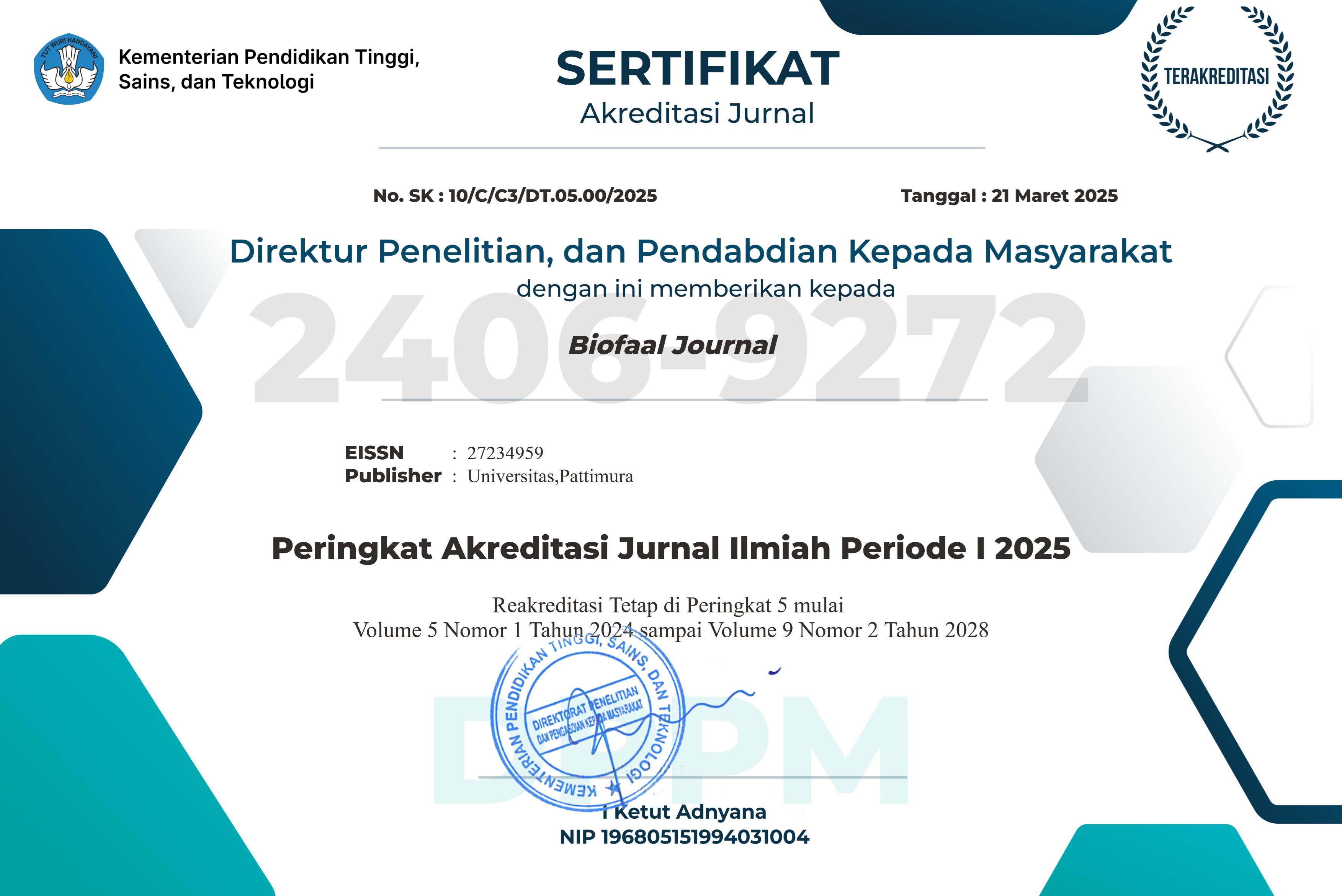Evaluation of Antibacterial Potential of Ethanol Extract from Kirinyuh (Chromolaena odorata L.) Leaves Against Salmonella typhi
Abstract
Kirinyuh leaves (Chromolaena odorata L.) are known to possess antibacterial activity against Salmonella typhi, the causative agent of typhoid fever. The leaves contain secondary metabolites such as flavonoids, saponins, tannins, and steroids, which contribute to their inhibitory effect on bacterial growth. This study evaluated the antibacterial efficacy of ethanol extract of C. odorata leaves at concentrations of 50%, 75%, and 100% using the Total Plate Count (TPC) method. Five treatment groups were tested: ciprofloxacin (positive control), distilled water (negative control), and kirinyuh extract at three concentrations. The results revealed five distinct statistical subsets, with significant differences observed between treatments in different subsets. Mean bacterial counts increased progressively from 24.7 in the positive control to 138.3 in the negative control. These findings demonstrate that ethanol extract of kirinyuh leaves effectively inhibits S. typhi growth, with the degree of inhibition varying according to extract concentration.
Downloads
Copyright (c) 2025 Nita Hastuti, Emerensiana Surasma Surung

This work is licensed under a Creative Commons Attribution-NonCommercial-ShareAlike 4.0 International License.
1. Author retain copyright and grant the journal right of first publication with the work simultaneously licensed under a creative commons attribution license that allow others to share the work within an acknowledgement of the work’s authorship and initial publication of this journal.
2. Authors are able to enter into separate, additional contractual arrangementfor the non-exclusive distribution of the journal’s published version of the work (e.g. acknowledgement of its initial publication in this journal).
3. Authors are permitted and encouraged to post their work online(e.g. in institutional repositories or on their websites) prior to and during the submission process, as it can lead to productive exchanges, as well as earlier and greater citation of published works.








